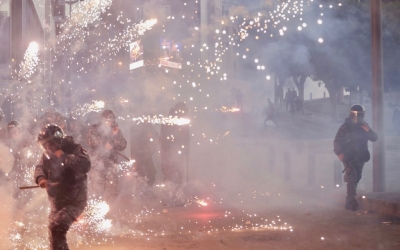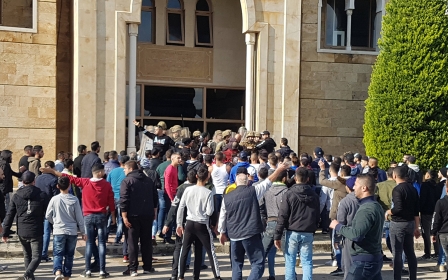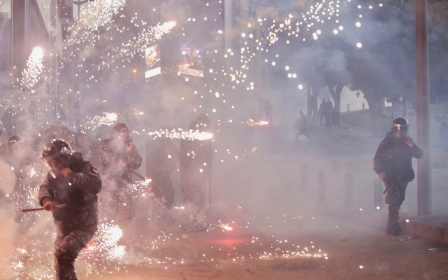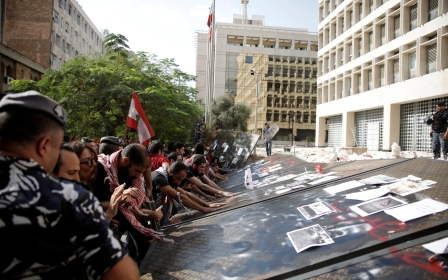Lebanese protesters clash with police for second night
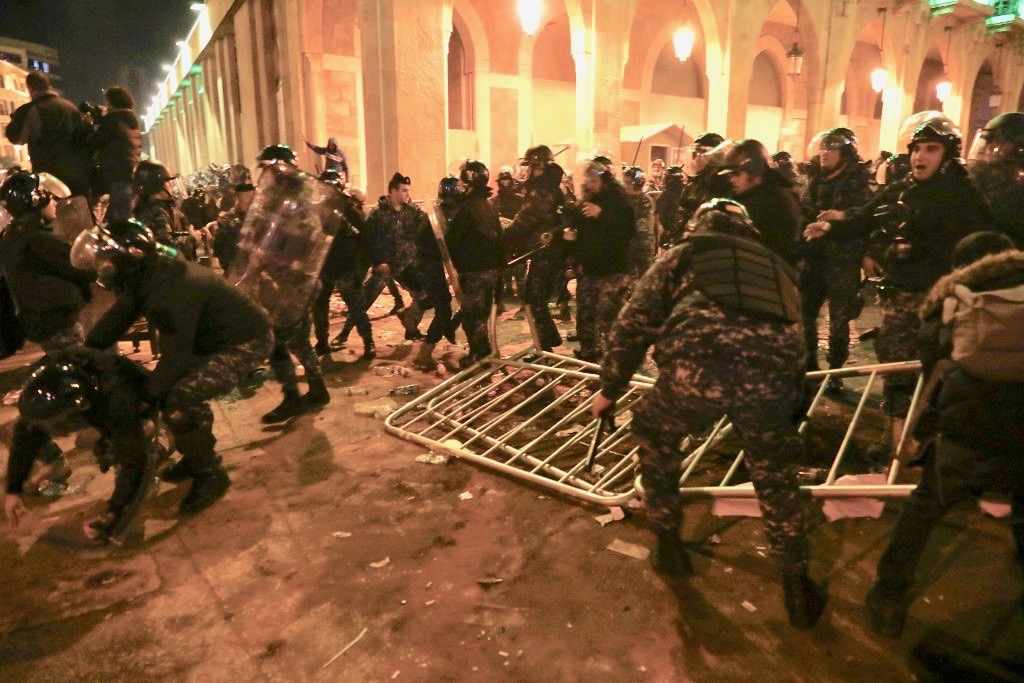
Lebanese protesters clashed with police on Sunday for a second consecutive night near parliament on the eve of much-delayed consultations to form a new cabinet needed to fix a deepening economic crisis.
Hundreds of people returned to demonstrate in Beirut despite a fierce crackdown by security forces at a protest the night before, when clashes wounded dozens, Reuters said.
It marked some of the most violent unrest in a wave of demonstrations that has swept Lebanon since 17 October, furious at a ruling elite that steered the country towards its worst economic crisis in decades and demanding the formation of an independent government of technocrats.
The renewed clashes in Beirut came as Interior Minister Raya El-Hassan ordered security forces to open a "rapid and transparent" inquiry after dozens were wounded on Saturday night, according to AFP.
Undaunted by the violence, thousands of demonstrators flooded central Beirut again on Sunday ahead of the parliamentary consultations that were due to begin on Monday morning to appoint a new premier after weeks of largely peaceful street protests forced the previous cabinet to quit. On Monday morning, however, President Michel Aoun postponed consultations until Thursday.
Clashes again erupted near parliament, with demonstrators throwing water bottles and firecrackers at the security forces who responded with tear gas and a water cannon, an AFP photographer said.
There were no immediate reports of casualties.
Still, the clashes threatened a repeat of scenes on Saturday evening that saw dozens of people hurt when security forces used tear gas and rubber bullets to disperse demonstrators who tried to breach metal barricades near the legislature.
The Lebanese Civil Defence and the Red Cross said they transferred 46 people to hospitals and treated the wounds of dozens of others on site during hours of clashes, CNN reported.
The Red Cross said the injured included protesters and security forces, with some affected by tear gas and others struck by stones.
Lebanese security forces said about 20 from their ranks were hospitalised.
An AFP photographer saw men in plainclothes hitting protesters on Saturday, while anti-riot police fired rubber bullets at protesters throwing stones.
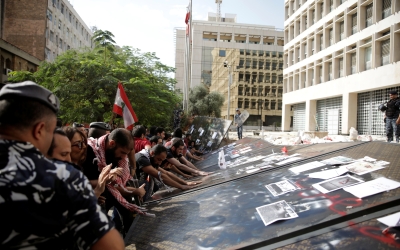
Amnesty International's Diala Haidar decried the "excessive use of force" in response to "overwhelmingly peaceful protest".
The clashes lasted until the early hours of Sunday, with demonstrators chanting slogans against outgoing Prime Minister Saad Hariri, who stepped down on 29 October.
The names of various potential candidates to replace Hariri have been circulated in recent weeks but powerful political parties in the multi-confessional country have failed to agree on a new premier.
Last Sunday, the Sunni Muslim establishment threw its support behind Hariri returning, further angering protesters.
Parliamentary consultations are due to begin on Monday at 10:30 am local time (0830 GMT).
The process of forming a government will take place as Lebanon's debt-burdened economy slides towards collapse.
Lebanon is in its worst economic crisis since the 1975-1990 civil war. Government spending has for decades been encumbered by huge fiscal deficits that have amounted to one of the highest debt-to-GDP ratios in the world. The result today is debt-servicing costs that consume roughly half of the public expenditure.
The country is also facing a dollar liquidity crisis, with banks limiting the withdrawal and transfers of the greenback, which has been selling for more than 2,000 Lebanese pounds on the parallel market for the first time since it was officially pegged at 1,507 in 1997.
The international community has urged that a new cabinet be formed swiftly to implement key economic reforms and unlock international aid.
Middle East Eye delivers independent and unrivalled coverage and analysis of the Middle East, North Africa and beyond. To learn more about republishing this content and the associated fees, please fill out this form. More about MEE can be found here.


